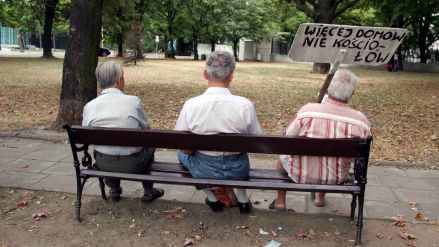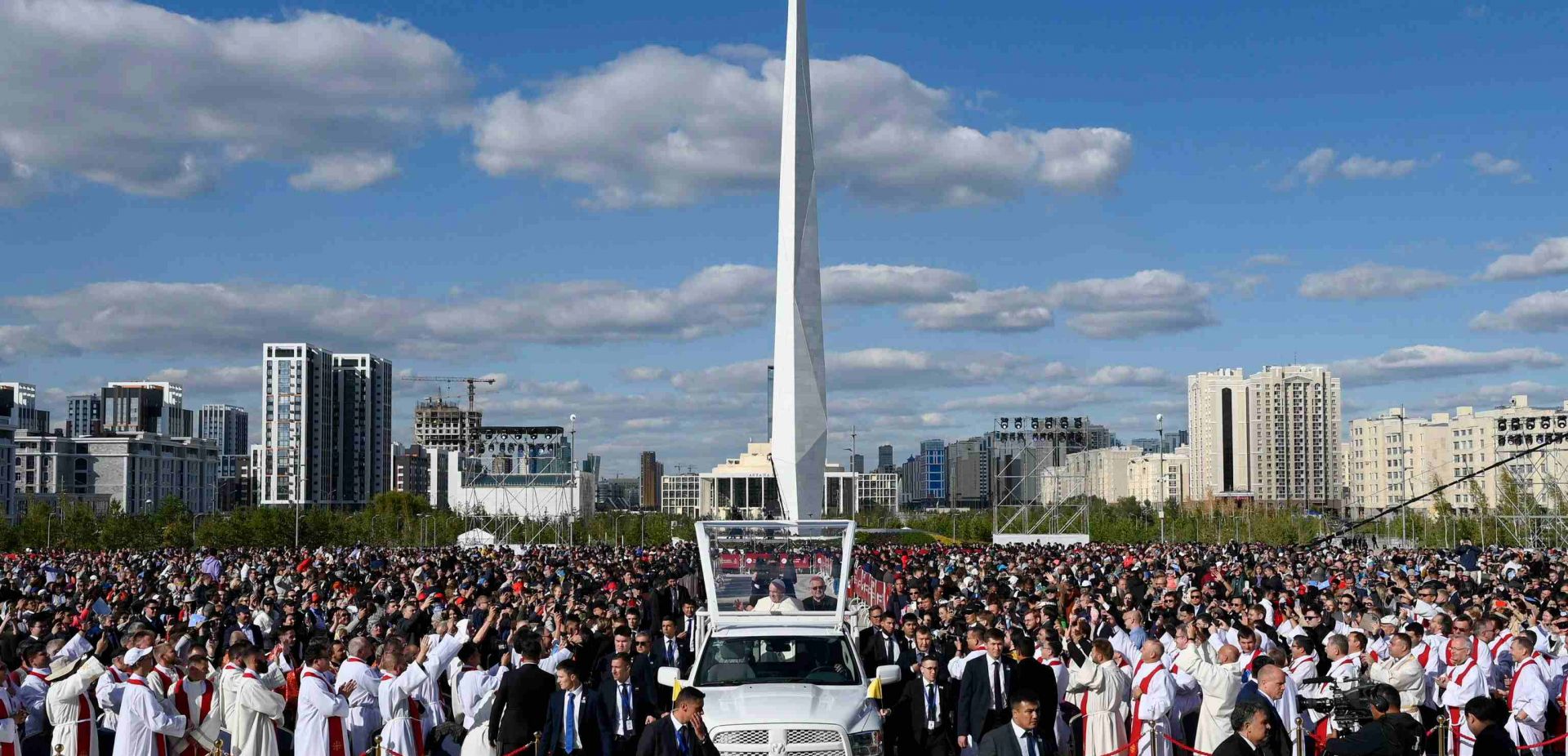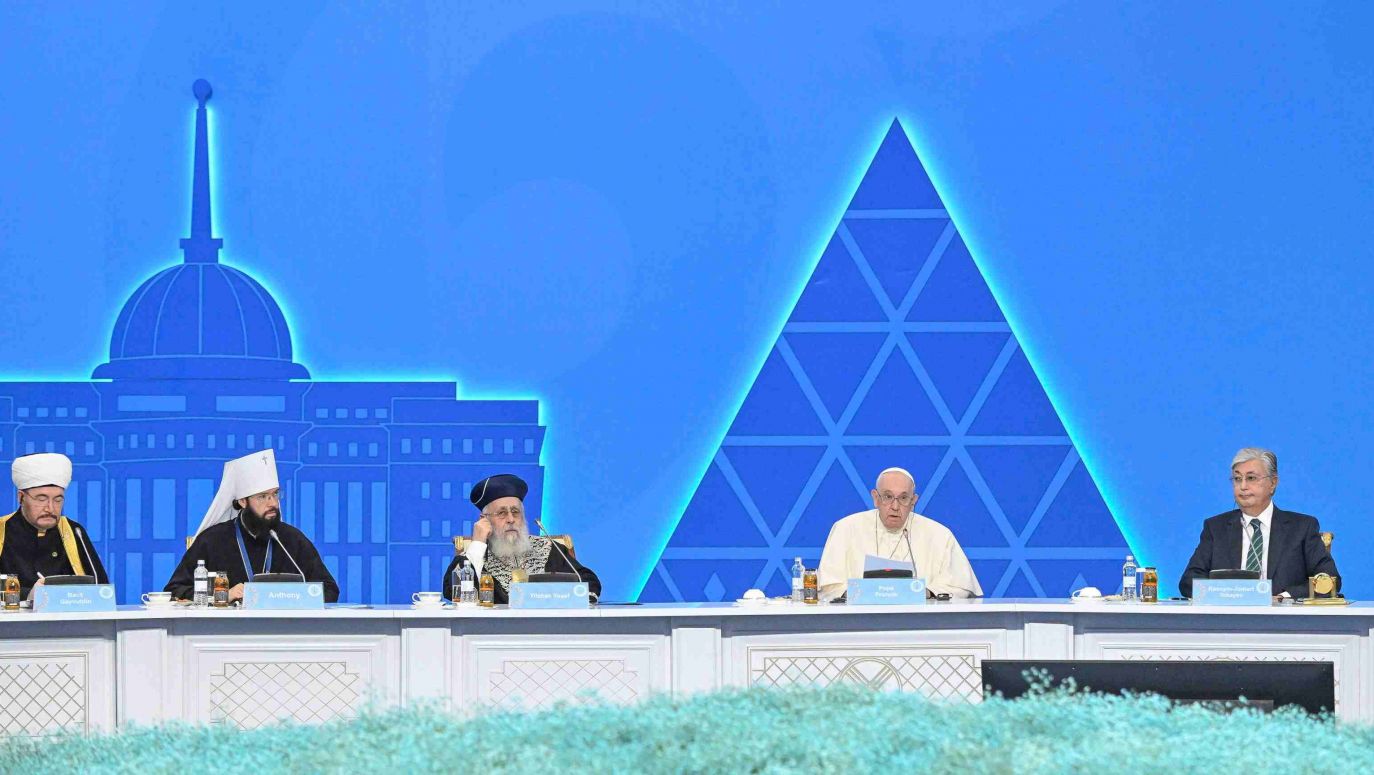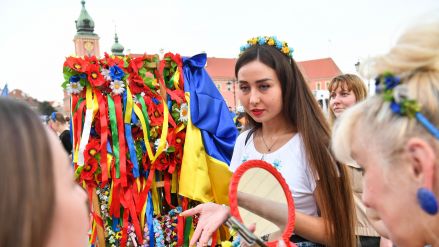Two words too few. What Pope Francis didn’t say in Kazakhstan
21.09.2022
“You must remember that not everyone looks at the war in Ukraine through Polish eyes,” a Jesuit warned me a few days ago. He wondered at my hopes that the Pope would have brought attention to the Russian aggression as well as to the specific situation of the Catholics in that far-off Asian country.
As far as Russian aggression went there was only one mention that the “Holy Father has his beloved Ukraine in his thoughts”, were words that he stated in his main mass for Catholics who came from the entire central Asia. But in the sermon or bidding prayers. But on that very day, Wednesday September 14 in all the churches of central Asia, prayers were said for the intention of Ukraine and peace in Ukraine. The CCEE, the Council of the Bishop’s Conference of Europe, appealed for such a Ukraine during the Feast of the Cross
At 6 am Warsaw time, on September 15, the meeting of the Pope with Catholic clergy and lay people lacked any reference to the situation in Ukraine. Mirosława Gałuszko had appealed for such as declaration. She is the wife of a Greek-Catholic priest and had come together with her four children from Ukraine. She thanked the Pope for “the efforts that the Holy Father had made to bring peace to my country of Ukraine.”
Did we have the right to expect this? But the Pope visited Kazakhstan on the occasion of a conference of the Leaders of World and Traditional Religions. It had the overarching aim to support the view that religions are the source of peace rather than war. He reminded the audience that “Religious freedom is a fundamental right, elemental, inalienable that has to be promoted everywhere and that cannot be limited just to freedom of worship.”
A High Price
Pope Francis has, for a long time, perhaps even since the start of his pontificate, searched for allies in the matter that religions are the source of peace. In a world that lives as of God didn’t exist, this pope calls or support for God an the civilisation of life. He searched for allies in the whole of the Christian world and continues to count, as seen from his gestures and comments, on the support from the Russian Orthodox church in this matter.
But is this too high a price to pay? The diplomatic words of the Pope and the Vatican are profound, perhaps too profound, in which a clear division of the aggressor and his victim cease to be understandable. The higher aim of defending Christian civilisation is not as visible when Christians are dying in Ukraine, Orthodox and Catholic churches are razed to the ground and the rights of humans and nations are trodden underfoot.

The Holy See has perhaps 180 such agreements, including with international organisations and with countries that are not Catholic at all.
see more
The President of Kazakhstan, Kassym-Jomart Tokayev stressed that his country is host to many religions and that not all believers had come to Kazakhstan voluntarily. In this he spoke for the Poles exiled by Stalin’s regime.
It cannot be denied that he majority of Catholics in the country are the descendants of Polish exiles, from years of a gloomy past. Volga Germans were also Catholics, introduced earlier by Russian Empress Catherine. They were later uprooted and sent to Kazakhstan during the Stalinist era. The majority would leave for Germany in 1990.
I was one of the first journalists to write about the Kazakh Poles in Poland’s no longer underground press. I wrote about the subject in Tydgodnik Gdański 1989 and in Tygodnik Solidarności 1992. In these articles, I outlined where the Poles came from. That these were not civilians who got lost on their way to enlist in the Anders Army, the Polish army in exile, and who had from the Polis eastern Borderlands been exiled by the Stalinist invasion of September 17 1939. But that they were our compatriots who had never left Poland because it was Poland that had left them.
These inhabitants of the former border areas if the Old Polish republic lived on land that after the Treaty of Riga were assigned to the Soviet Ukrainian Republic as the Marchlevsk and Zhytomyr National Districts. The authorities in 1936 evicted them form their homeland and sent them, to the steppes a region that not even the insurgents of the 19th century had heard of. But a few survived; others were liquidated in the so-called Polish Operation in the 1930s.
I Collected money, at St Tomasz’s church in Warsaw’s Ursynów for Polish school children and their families I living in Ozior Kellerovka (named after the German community). Also from Tainchy, Pervomeyka, Kamyshenka and other places scattered about the steppe. These formed the Karagnda district, administered by the Karlag, the Karaganda Corrective District board, the largest internment camp in the USSR, and which had countless victims.
My contact there was Teresa Fudala, an uncommonly committed Polish language teacher. She was the first to heed the call by the Karaganda authorities for a Polish teacher. She was well suited to the challenges and this eased her contact with the people there who “always knew” that God was on high but Poland was far away. And that they had to fend for themselves, because the parish priest Father Władysław Bukowiński could come only once a year or even less if he had not been sent to the camps that is.
From Gdańsk railway station in Warsaw, a train departed once a week to Petropavlovsk or even further to Kochetova. Once we had to find a young priest from the Gdańsk diocese Tomasz Peta and give him a traveling companion a figure of Christ or The Virgin Mary. They travelled to the village of Oziornoje who helped in the establishment of a local parish. Chief in this were Poles, descendants from 1936 but also older people who remembered Polish prayers from their unknown homes.
Tomasz Peta is thirty years older now and he is the archbishop of Astana/Nur-Sultan, In the village of Oziornoje he has built the Sanctuary of Mary Queen of Peace. Pilgrims come from various corners of the world. The Carmelite Sisters are there permanently and the Pope blessed the Icon of the Queen of the Great Steppe for Oziornoje. All can remember the drought of 1943 and famine, exiles had been sent there. The Virgin Mary as she was regarded allowed the “miracle of the fish” the miraculous appearance of fish in a local puddle that could feed everyone.
Father Bukowiński’s successors
Because of these circumstances, I started to ask if the Pope would have known where the Catholics in Kazakhstan actually originated: it’s not a natural area for missionary work. And who was Blessed Father Władysław Bukowiński, whose career led the fate of Catholics in the country. He was sentenced in 1945 to ten years in the gulag. Afterwards he remained in the USSR as he thought that he could not leave the exiles without pastoral care/
“So we are the successors of Blessed Father Władysław Bukowiński” the local bishop said on Thursday September 15 in the Cathedral of Mary Most Holy upon welcoming the Pope to the meeting.


 SIGN UP TO OUR PAGE
SIGN UP TO OUR PAGE 







